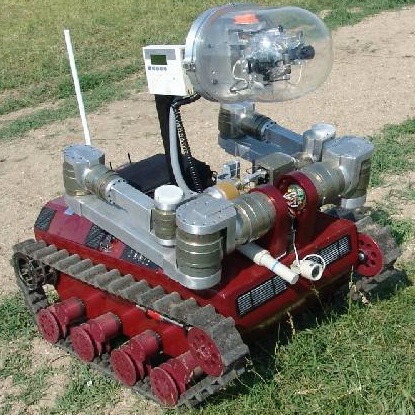Recently, learning-based controllers have been shown to push mobile robotic systems to their limits and provide the robustness needed for many real-world applications. However, only classical optimization-based control frameworks offer the inherent flexibility to be dynamically adjusted during execution by, for example, setting target speeds or actuator limits. We present a framework to overcome this shortcoming of neural controllers by conditioning them on an auxiliary input. This advance is enabled by including a feature-wise linear modulation layer (FiLM). We use model-free reinforcement-learning to train quadrotor control policies for the task of navigating through a sequence of waypoints in minimum time. By conditioning the policy on the maximum available thrust or the viewing direction relative to the next waypoint, a user can regulate the aggressiveness of the quadrotor's flight during deployment. We demonstrate in simulation and in real-world experiments that a single control policy can achieve close to time-optimal flight performance across the entire performance envelope of the robot, reaching up to 60 km/h and 4.5g in acceleration. The ability to guide a learned controller during task execution has implications beyond agile quadrotor flight, as conditioning the control policy on human intent helps safely bringing learning based systems out of the well-defined laboratory environment into the wild.
翻译:近年来,学习型控制器已经展现出将移动机器人系统推向极限并为许多实际应用提供所需的鲁棒性的能力。然而,仅有经典的基于优化的控制框架本身才具有被动态调整的先天灵活性,例如通过设置目标速度或致动器限制。本文提出了一个框架来解决神经控制器的这个缺陷,即将其条件化于辅助输入上。这一进步是通过包括特征线性调制层(FiLM)来实现的。我们使用无模型强化学习来训练四旋翼控制策略,以便在最短时间内穿过一系列航点。通过将策略置于最大可用推力或相对于下一个航点的视线方向上,用户可以在部署期间调节四旋翼飞行的攻击性。我们在模拟实验和真实世界实验中展示了单一控制策略可以在整个机器人的性能范围内实现接近最优时间的飞行性能,达到60公里每小时和4.5g的加速度。将学习基于系统的控制策略引导到任务执行中具有超越机动四旋翼飞行的意义,因为将控制策略置于人类意图上有助于将以学习为基础的系统从明确定义的实验室环境安全地推向更广阔的野外环境。



